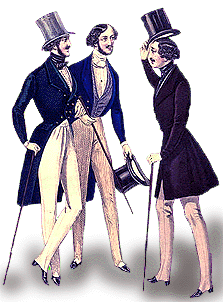
John Henry Newman:
Does He have it all figured out?
Like many of the works we have read, John Henry Newman’s “Idea of a University” mirrors the concerns expressed in our thesis regarding the proliferation of scientism in education; however, it is possibly the only work that expresses a solution to this problem that can be carried through to our current age. Unlike staunch Classicists, like Matthew Arnold, he recognizes the error in suppressing or ignoring science. He sees the University as a place where “all branches of knowledge are connected together”, where “they compete, correct, balance each other”(179). He also addresses the inherent error Classicists make when they rely to much upon the instructive power of these ancient texts: “Thus the Classics, which in England are the means of refining taste, have in France subserved the spread of revolutionary and deistical doctrines” (180). [Note how he masterfully dismantles the Classicists’ argument by highlighting the failings of French, an almost infallible rhetorical move when addressing an English audience].
Clearly Newman’s idea of a “whole circle” approach to knowledge comes closest to what we have proposed as the only solution for combating scientism, yet there are those who would argue that in defining true ‘Knowledge’ as something which must be divorced from utility, Newman’s model University has not truly addressed all the science. The fact that contemporary Universities have faculties whose names begin with the word ‘applied’, such as the Applied Science Faculty, is a testament to the academic community’s desire to resist Newman’s theory of a University where “Knowledge is capable of being its own end”(181).
However, as we have shown through several tangible examples from both the Victorian Age and the Twenty First Century, there is a moral degeneration occurring in universities that can arguably be linked to the proliferation of scientism. And although Newman’s theory may seem to fall short of balance between sciences that it seeks to achieve; yet, when examined in a moral context, the limitations he imposes may be necessary in order to foster the type of morality that has slowly evaporated from the consciences of students for the last 150 years. This is may be especially true if we consider not only Darwinism and the proliferation of scientism, but also consequent ‘death of God’ as the cause of this moral degradation in education.
In a world where God is dead, it becomes increasingly hard to foster morality among people through religious doctrine and faith. Therefore, if we can no longer rely on the church to maintain our moral centres, we must inevitably look elsewhere. Newman believes that the solution is the study of ‘knowledge for its own end’. He feels that it is a ‘Liberal’ education that will lead to the creation of the best kinds of individuals:
“Hence it is that his education is called “Liberal”. A habit of mind is formed which lasts through life, of which the attributes are freedom, equitableness, calmness, moderation, and wisdom […]”(181).
As he addresses in his section, “Knowledge and Religion”, the study of this pure ‘Knowledge’ is actually capable of the forming not only the minds, but also the souls of its students:
“Knowledge, the discipline by which it is gained and the tastes by which it forms, have a natural tendency to refine the mind, and to give it an indisposition, simply natural, yet real, nay, more than this, a disgust and abhorrence, towards excesses and enormities of evil, which are often or ordinarily reached at length by those who are not careful from the first to set themselves against what is vicious and criminal.”(218)
I believe that the type of morality that Newman is talking about would not be achievable in the applied study of knowledge. As proof, I would put forward the study of law against the study of English. In the case of rhetoric, lawyers are taught nothing beyond the Aristotelian triangle. They are taught how to argue convincingly, but often not why, or whether they should argue some point. In today’s law schools, as in Victorian times, the purpose of a legal education is to acquire knowledge that will allow you to become gainfully employed. In English Faculties, the study of rhetoric has moved well beyond the simple notions of argumentation put forward by Classical philosophers and has become something that allows us to question the nature, and often the moral implications, of our communications with others.
As Newman attests, this type of ‘Knowledge’ “generates within the mind a fastidiousness analogous to the delicacy or daintiness which good nurture or a sickly habit induces in respect of food; and this fastidiousness, though arguing no high principle, though no protection in the case of violent temptation, nor sure in its operation, yet will often or generally be lively enough to create an absolute loathing of certain offences, or a detestation and scorn of them as ungentelmanlike, to which ruder natures, nay, such have far more real religion in them, are tempted or even betrayed”(218-219).
Although carefully worded, the passage represents the solution to both the problem of scientism and the death of God. Although it argues “no higher principle”, it does instill “fastidiousness” in the minds of its pupils; therefore if a ‘higher principle’, or God, is no longer attainable, then surely the study of this pure Knowledge is the only way to ensure the moral fortitude, or ‘gentlemanliness’, of our students.
I think Newman’s solution is one of the most promising we have looked at today. In it, I see only one problem. What of those who do not inherently posses the sensibility for such studies? How are they to be educated? How is their moral character to be formed?











